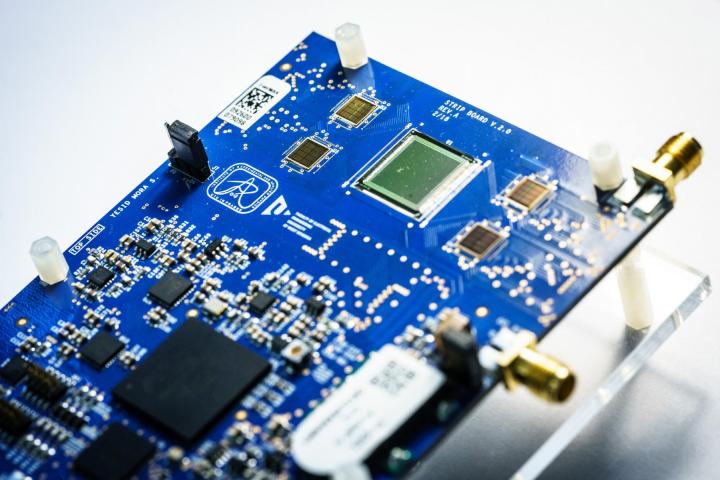
Widepix spol. s r.o., an independent spin-off company, later renamed to Advacam, spol. s r.o was founded in 2013. Employees who left the institute and form the core of the company now successfully run it commercially, on the basis of a long-term license agreement between the two entities. Advacam, Ltd. s r.o., supplies the market with detection systems based on detectors developed in the Medipix / Timepix collaboration with the active participation of CTU ÚTEF employees, which it further develops according to the requirements of various partners. An example of such a procedure is a pixel detector in the miniaturized LITE architecture, which was also manufactured at CTU ÚTEF and NASA used it on the ISS as a radiation dosimeter. Its commercial expansion was already provided for NASA by Advacam.
The methodology of using these detection systems for dosimetry in complex radiation fields expected in outer space is protected by two joint patents in the USA and other developed countries, prepared within the cooperation between CTU ÚTEF and CERN employees.
"Everything we tested experimentally on the accelerator at CERN moved us into space. We are pleased with the current success of the Advacam company, which, in connection with the long-term scientific research activities of CTU - ÚTEF focused on the development of hybrid pixel detectors of ionizing radiation, manage to transfer as "high-tech" products finding application in many fields, "says doc. Ivan Štekl, director of CTU ÚTEF.
CTU ÚTEF employees have long been dedicated to space applications. Their detectors adapted to the demanding conditions prevailing in space have already been sent to several satellites (Proba-V in 2013, Czech VZLUSAT-1 in 2017, Japanese RISESAT in 2019). Currently, CTU ÚTEF prepares detection systems for other space projects, such as the ESA satellite GOMX-5, a mission to search for water on the Moon, the lunar orbital station Gateway, and a Taiwanese satellite in orbit around the Moon. An important activity is also taking place within the EU consortium of the PAN project for detector development based on a combination of pixel and strip detectors.
Advacam's commercial activities towards NASA and ESA are of great importance for the application of detectors in space and raising visibility of Czech technology companies in the world. It is a direction that is supported by various governmental or international projects, but above all it is an opportunity for cooperation between industrial partners and universities. Many companies have already understood that supporting creative heads at universities in contract research and collaboration will pay off many times over. Space research and cutting-edge products for this sector represent a challenge, but also extraordinary opportunity for all.